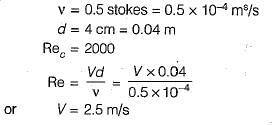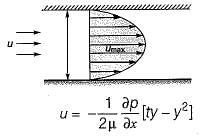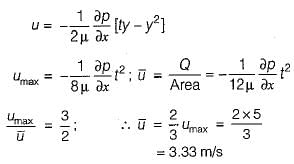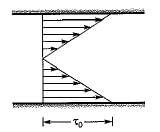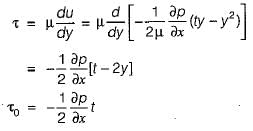Mechanical Engineering Exam > Mechanical Engineering Tests > Topicwise Question Bank for Mechanical Engineering > Test: Viscous Flow - 1 - Mechanical Engineering MCQ
Test: Viscous Flow - 1 - Mechanical Engineering MCQ
Test Description
10 Questions MCQ Test Topicwise Question Bank for Mechanical Engineering - Test: Viscous Flow - 1
Test: Viscous Flow - 1 for Mechanical Engineering 2024 is part of Topicwise Question Bank for Mechanical Engineering preparation. The Test: Viscous Flow - 1 questions and answers have been
prepared according to the Mechanical Engineering exam syllabus.The Test: Viscous Flow - 1 MCQs are made for Mechanical Engineering 2024 Exam. Find important
definitions, questions, notes, meanings, examples, exercises, MCQs and online tests for Test: Viscous Flow - 1 below.
Solutions of Test: Viscous Flow - 1 questions in English are available as part of our Topicwise Question Bank for Mechanical Engineering for Mechanical Engineering & Test: Viscous Flow - 1 solutions in
Hindi for Topicwise Question Bank for Mechanical Engineering course. Download more important topics, notes, lectures and mock
test series for Mechanical Engineering Exam by signing up for free. Attempt Test: Viscous Flow - 1 | 10 questions in 30 minutes | Mock test for Mechanical Engineering preparation | Free important questions MCQ to study Topicwise Question Bank for Mechanical Engineering for Mechanical Engineering Exam | Download free PDF with solutions
Test: Viscous Flow - 1 - Question 2
An oil of kinematic viscosity 0.5 stokes flows through a pipe of 4 cm diameter. The flow is critical at a velocity of about
Detailed Solution for Test: Viscous Flow - 1 - Question 2
| 1 Crore+ students have signed up on EduRev. Have you? Download the App |
Test: Viscous Flow - 1 - Question 3
In flow through a pipe, the transition from laminar to turbulent flow does not depend on
Detailed Solution for Test: Viscous Flow - 1 - Question 3
Detailed Solution for Test: Viscous Flow - 1 - Question 6
Test: Viscous Flow - 1 - Question 7
For laminar flow between two fixed parallel plates, the flow velocity
Detailed Solution for Test: Viscous Flow - 1 - Question 7
Test: Viscous Flow - 1 - Question 8
The maximum velocity of a one-dimensional incompressible flow between two fixed parallel plates is 5 m/s. The mean velocity (in m/s) of the flow is
Detailed Solution for Test: Viscous Flow - 1 - Question 8
Test: Viscous Flow - 1 - Question 9
The shear stress between two fixed parallel plates with a laminar flow between them
Detailed Solution for Test: Viscous Flow - 1 - Question 9
Test: Viscous Flow - 1 - Question 10
Velocity for flow through a pipe, measured at the center is found to be 3 m/s. If the Reynolds number is around 1000, what is the average flow velocity in the pipe?
Detailed Solution for Test: Viscous Flow - 1 - Question 10
|
45 videos|314 tests
|
Information about Test: Viscous Flow - 1 Page
In this test you can find the Exam questions for Test: Viscous Flow - 1 solved & explained in the simplest way possible.
Besides giving Questions and answers for Test: Viscous Flow - 1, EduRev gives you an ample number of Online tests for practice
|
45 videos|314 tests
|
Download as PDF


